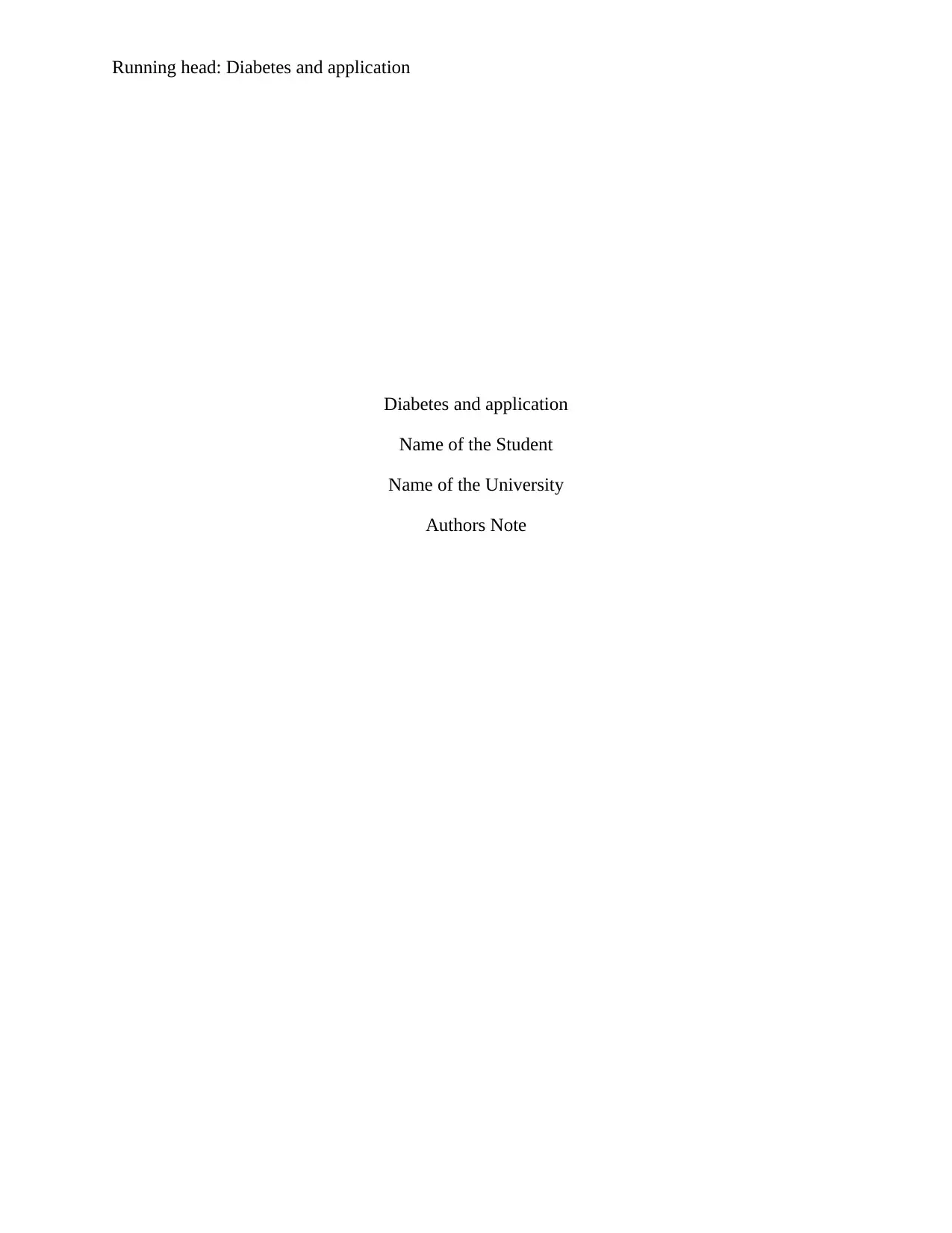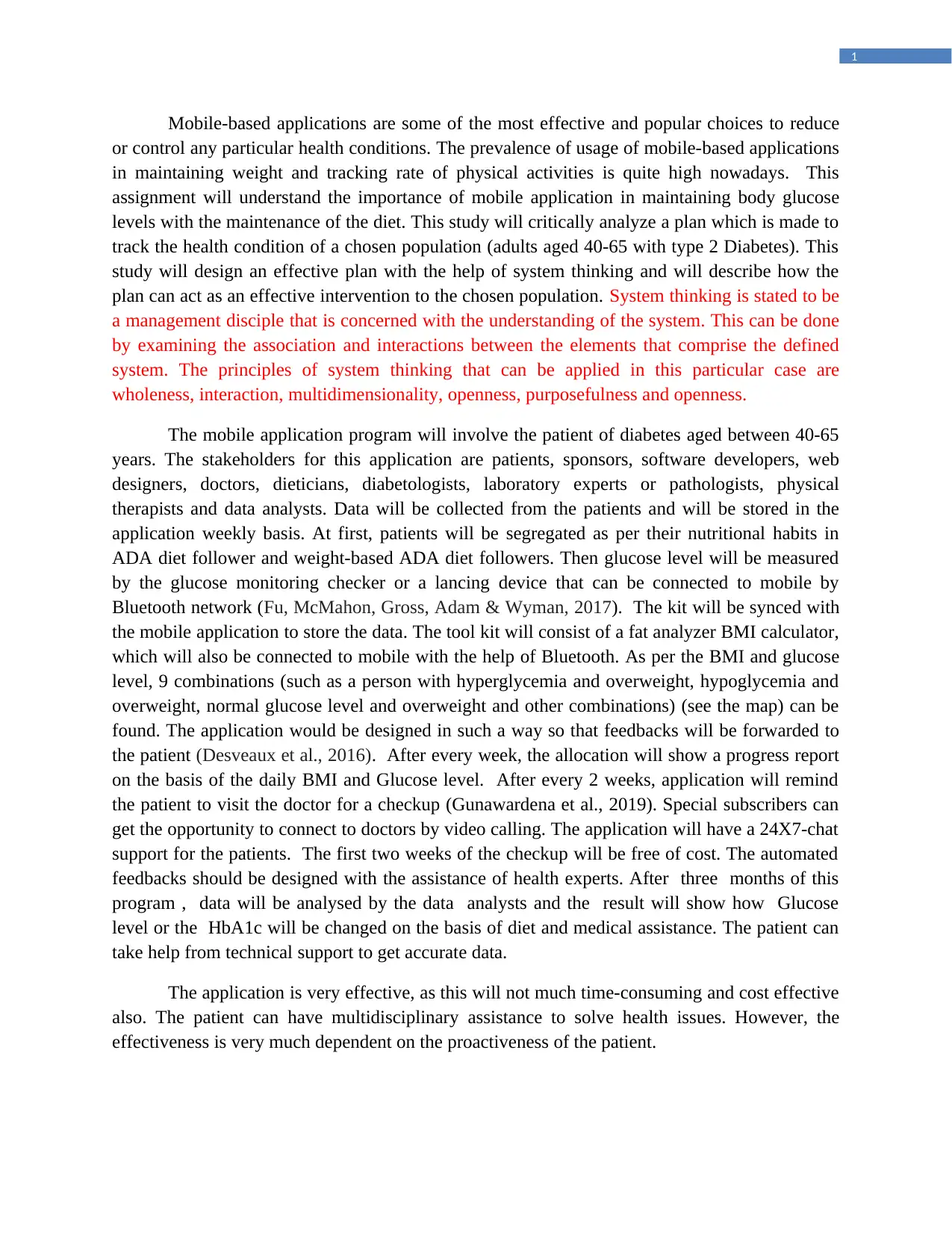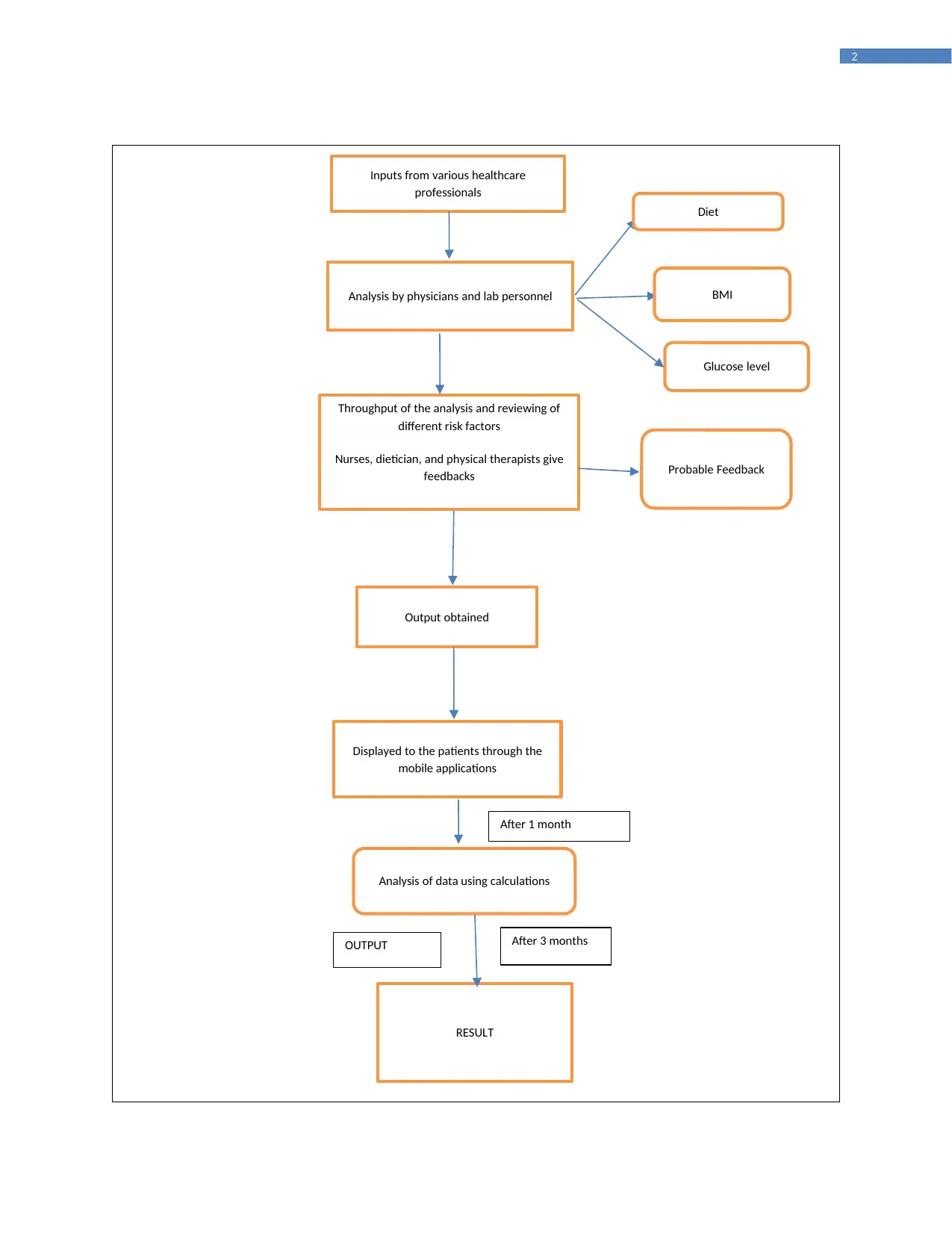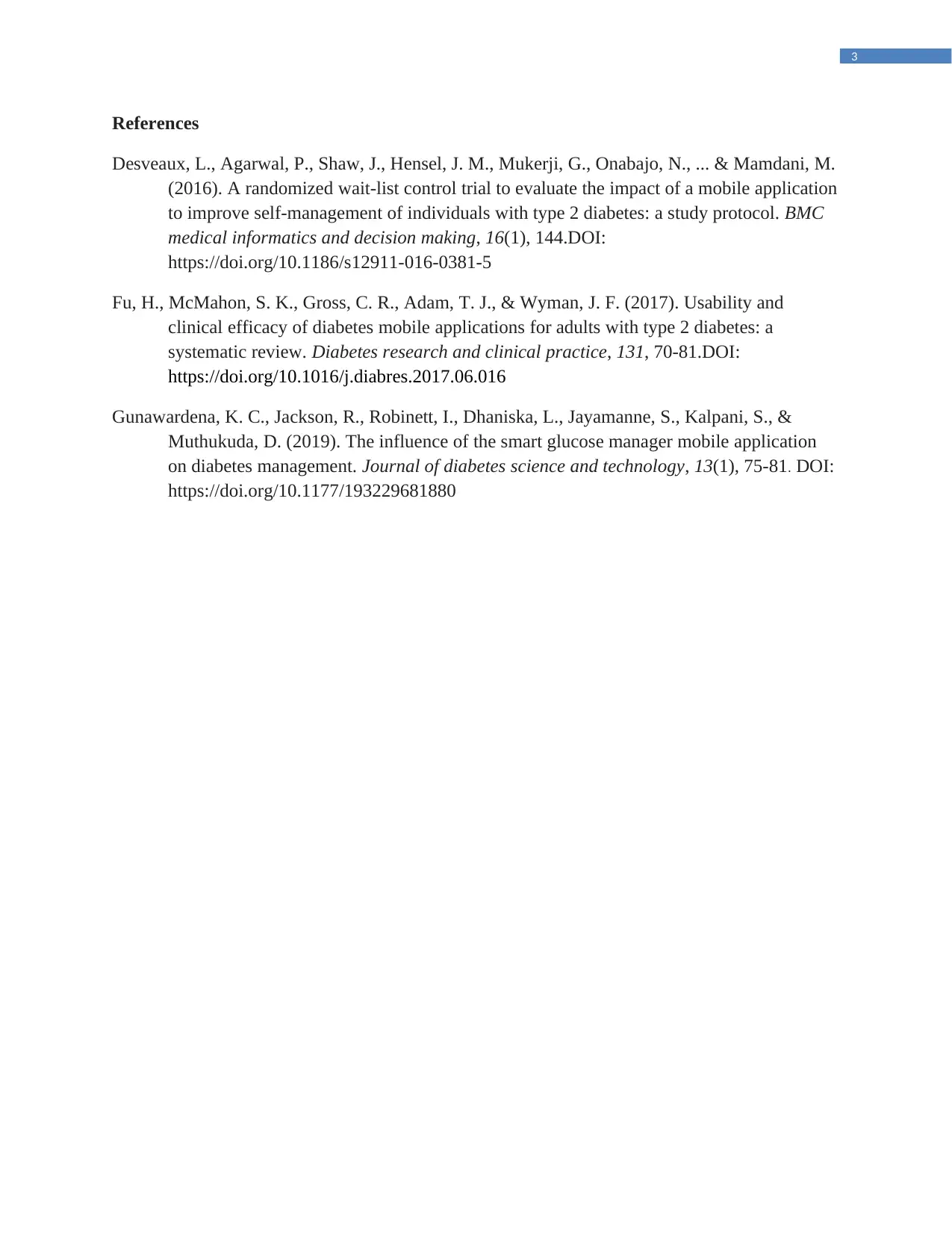Applying System Thinking to a Diabetes Mobile Application Project
VerifiedAdded on 2022/08/23
|4
|952
|20
Project
AI Summary
This project explores the development and implementation of a mobile application designed to aid adults aged 40-65 with type 2 diabetes in managing their condition. The application aims to enhance diabetes management by tracking glucose levels, BMI, and dietary habits. The project employs system thinking principles to create a comprehensive plan involving various stakeholders, including patients, doctors, dieticians, and software developers. The application will provide personalized feedback, reminders for check-ups, and 24/7 support. Data analysis will be conducted to assess the impact of the application on blood glucose levels and HbA1c over a three-month period. The project emphasizes the importance of proactive patient engagement and multidisciplinary assistance in achieving effective diabetes management. The system diagram illustrates inputs like patient data and feedback, throughputs like analysis and review, and outputs like improved health metrics, demonstrating a cyclical approach to continuous improvement and patient care. The project also references related research on the usability and efficacy of diabetes mobile applications.
1 out of 4







![[object Object]](/_next/static/media/star-bottom.7253800d.svg)